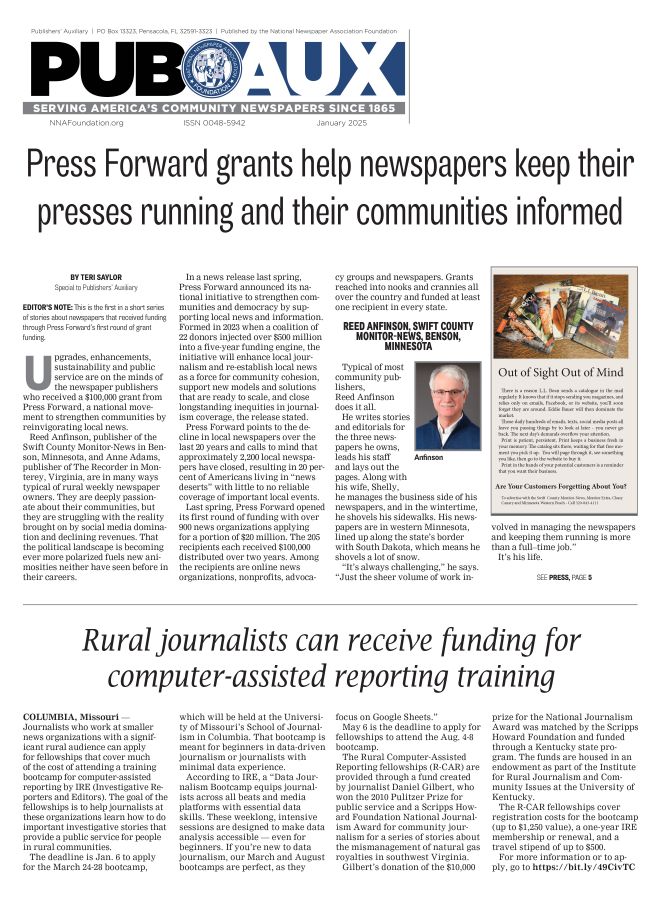Sure, you can say that — but please don't
Dec 18, 2014
By Gene Policinski
Inside the First Amendment
The hecklers appear to be winning this one.
A growing number of news, commentary and information sites are doing away with comments on some or all of their online offerings — exhausted, disgusted or repelled by the likelihood that the posts quickly will deteriorate into a morass (yes, that's a pun) of vulgarity, obscenity, racism or just plain old irrelevance.
As much as we all might wish for the most free and open exchange as possible, there seems little alternative. I've even developed my own rule about online comments: Even if the back-and-forth begins on a high plane, on average, discussions spiral into blarney, bologna and worse by five comments down. Just picture this exchange:
WChurchill@London.org: "I've just read a fine article on the pursuit of WWII from the British point of view. Our small Island at one time stood alone against the greatest threat to democracy and freedom in world history. It was indeed our greatest hour."
HSTruman@MoGuy.com: "Winnie, you ninny. I'm glad you said 'British point of view.' Fact is, you Brits didn't win it alone. The good ole U-S-of-A did its share. Do a little more reading and less speaking. Ever heard of something called 'arsenal of democracy?'"
BirtherBiggie@right.org: "And don't forget that Barack Hussein Obama was born in Kenya. The nation has got to wake up and resist high taxes and big government and ..." [remainder of comment redacted for length]
LWinger@left.org: "(Expletive) What has all that got to do with the Keystone pipeline? Shut up. Go away. So there! (Expletive) ..." [remainder of comment redacted for length]
AnonGuy@home.net: "You're all full of (expletive) ... you all can go [deleted for content]. And [deleted for content] ... So [deleted for content]. (Expletive)"
An irony in all of this is that just as the Internet and World Wide Web are reaching the electronic equivalent of adulthood, these kinds of childish exchanges, bottom-feeder hate mail and racist posts, have led to less free and open exchange of views, in cutting-edge social media enterprises and traditional news outlets. A report in November on the Poynter Institute Web site noted the co-executive editors of Re/code, a site known for knowledgeable reporting on technology and media, wrote Nov. 20 that "the bulk of discussion of our stories is increasingly taking place (on social media), making onsite comments less and less used and less and less useful."
The Chicago Sun-Times and its parent company slam-dunked their "comments" area in mid-2014, saying the forums often were marked by "... negativity, racism, hate speech and general trollish behaviors that detract from the content."
The worldwide news service Reuters ended comments on stories, noting that social communities offer chances for "vibrant conversation" and "... importantly, are self-policed by participants to keep on the fringes those who would abuse the privilege of commenting." But the self-selected nature of social media may well mean commenters are just preaching to the choir.
In 2013, Popular Science magazine ended comments on its stories, calling them "bad for science." A Sept. 24 post on the magazine's site said that research had found "even a fractious minority wields enough power to skew a reader's perception of a story."
Therein is the free speech dilemma — allowing a small group to shut down the exchange of ideas and information by a larger group. But news operations and others have their own First Amendment right to determine what they and their sites stand for — and at this stage in the Web's life span, many are deciding that they stand for more than giving voice to the lowest common denominator.
The decision to end comments can affect not just the online community. On Dec. 8, the St. Louis Post Dispatch announced in an editorial that it would end comments for at least two months in a section devoted to discussion about the events in nearby Ferguson, Mo. Along with some enlightening thoughts, the area attracted "vile and racist comments, shouting and personal attacks." Readers can still comment on news items — but an opportunity was lost for a time for deep discussion on race, a subject the region "has been avoiding for years," the paper noted.
There's nothing in the 45 words of the First Amendment that says our free speech can't be vulgar or vile, or even racist and insulting. But the intent of protecting free speech was in the opposite direction — encouraging free discussion among informed citizens so that public policy could be formed by the governed, not by government.
Support for free speech runs deep in this nation: In a survey in 2013 by the Newseum Institute's First Amendment Center, free speech was named our most important freedom.
Surely, that sentiment should run deeper than "five comments down."
Gene Policinski is chief operating officer of the Newseum Institute and senior vice president of the Institute’s First Amendment Center. He can be reached at gpolicinski@newseum.org.







